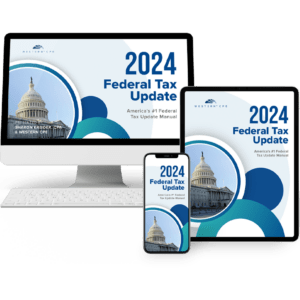WESTERN CPE BLOG
Providing the latest tax news, information, and updates for tax and finance professionals
Ohio CPE Requirements: What You Need to Know
Introduction
Staying compliant with Ohio’s Continuing Professional Education (CPE) requirements is essential for CPAs and financial professionals to maintain their licensure. With the triennial license renewal deadline fast approaching on December 31, now is the time to ensure your credits are up-to-date and meet the state’s specific requirements.
In this post, we’ll cover everything you need to know about Ohio CPE requirements rules, common challenges professionals face, and how you can easily meet the requirements with the right courses.
Overview of Ohio’s Accounting CPE Requirements
Ohio CPAs must adhere to a detailed set of rules to maintain their active licenses. Below is a breakdown of key requirements:
- License Renewal Deadline: December 31 (every three years).
- CPE Reporting Period: January 1 to December 31 (three-year cycle).
- Total Credit Hours Required: 120 hours per triennial period.
- Minimum Annual Requirement: 20 CPE hours per year.
- Ethics CPE Requirement: 3 hours specifically approved by the Executive Director of the Accountancy Board of Ohio.
Credit Limitations
- Group Live Daily Limit: A maximum of 8 credits can be earned for group live study in one day, provided the session is at least 400 minutes long (excluding breaks).
- Publications: Credits for publications or other special learning activities require approval from the executive director, subject to board review.
- Examinations: Up to 40 credits per session may be awarded for passing approved major professional exams, with a standard credit of 10 hours per examination hour (minimum three-hour session required).
Subject Area Requirements
- Accounting or Auditing: 24 hours if performing financial reporting engagements or related work.
- Tax: 24 hours if involved in tax engagements or providing tax-related advice.
Special Policies
- NASBA Membership: Courses must be from providers listed in NASBA’s National Registry or otherwise approved by the Accountancy Board of Ohio.
- Non-Resident CPAs: Ohio accepts compliance with the CPE requirements of the state in which a non-resident CPA’s principal office is located, provided that state has requirements.
Common Challenges
Meeting CPE requirements for Ohio CPAs can be straightforward, but there are some challenges to keep in mind:
- Understanding Credit Categories: Professionals often struggle with meeting specific credit requirements for ethics, accounting, or auditing. Be sure to choose courses that are explicitly approved to count toward these categories. For live CPE credits in a variety of categories, join us in Las Vegas.
- Daily Credit Limitations: Live group study credits are capped at 8 per day. Overloading your schedule can result in wasted hours.
- Documentation: Ohio has stringent documentation rules for publications and special learning activities. Ensure you retain appropriate records to substantiate your claims.
- Ethics Course Approval: Not all ethics courses meet Ohio’s strict standards. Verify approval before enrolling. For state-specific ethics, Western CPE provides several options.
Recommended Courses
These courses have been particularly popular with professionals in Ohio and are tailored to meet your needs:
America’s #1 Federal Tax Update is a comprehensive collection focused on individual and business taxation that covers all of the latest developments the IRS, legislative, and judicial folks can and will throw your way. It’s bigger, better, and more trusted than the knock-offs out there, so accept no substitutes.
Take control of your continuing education with Western’s Credit Packages: flexible CPE that fits your exact requirements. Get access to our entire digital course library, including webcasts, self-study, and self-study video courses. It’s like an unlimited CPE subscription, but better—you only pay for what you need.
Essential review for Ohio CPA Ethics and Professional Standards. Examine state regulations and ethical principles through practical scenarios while fulfilling Board requirements.
In-depth exploration of Nonprofit Accounting principles and practices. Enhance your understanding of financial management in the nonprofit sector, from foundational concepts to complex specialized topics.
Comprehensive program for Accounts Receivable Management and Credit Strategy. Transform billing processes and collection methods while implementing robust credit evaluation techniques.
Strategic guide for Divorce Tax Planning and Asset Division. Master complex tax implications of marital dissolution while structuring effective solutions for property transfers and support arrangements.
Conclusion
Ohio CPAs must carefully plan their CPE activities to meet the state’s unique requirements. By staying informed and choosing the right courses, you can avoid common pitfalls, remain compliant, and focus on your professional growth. Our catalog features a variety of courses designed to help you meet the Accountancy Board of Ohio’s CPE requirements, including ethics, accounting, auditing, and tax.
Join thousands of professionals who trust us to help them meet their CPE requirements. Browse our catalog today and discover courses designed to fit your goals and deadlines.
FAQ
Q: How many total CPE hours do I need to earn for the triennial reporting period?
A: You need 120 hours over three years, with a minimum of 20 hours annually.
Q: Do ethics courses need special approval in Ohio?
A: Yes, ethics courses must be specifically approved by the Executive Director of the Accountancy Board of Ohio.
Q: Can non-residents fulfill Ohio’s requirements through their home state’s CPE program?
A: Yes, as long as your home state has CPE requirements. If not, you must comply with Ohio’s standards.
Q: What happens if I don’t meet the minimum annual requirement of 20 hours?
A: Failure to meet the minimum annual requirement may result in non-compliance penalties or other actions by the Accountancy Board of Ohio.
-
Self-Study
Are You Independent?
$29.00 – $49.00 Select options This product has multiple variants. The options may be chosen on the product page -
Self-Study
Excel Tips to Boost Your Productivity
$29.00 – $49.00 Select options This product has multiple variants. The options may be chosen on the product page -
Self-Study
GAAP Hot Topics – What You Need to Know
$384.00 – $424.00 Select options This product has multiple variants. The options may be chosen on the product page -
Self-Study
The Risk of Abuse in Accounting Estimates: GAAP Insights and Audit Strategies
$58.00 – $78.00 Select options This product has multiple variants. The options may be chosen on the product page














